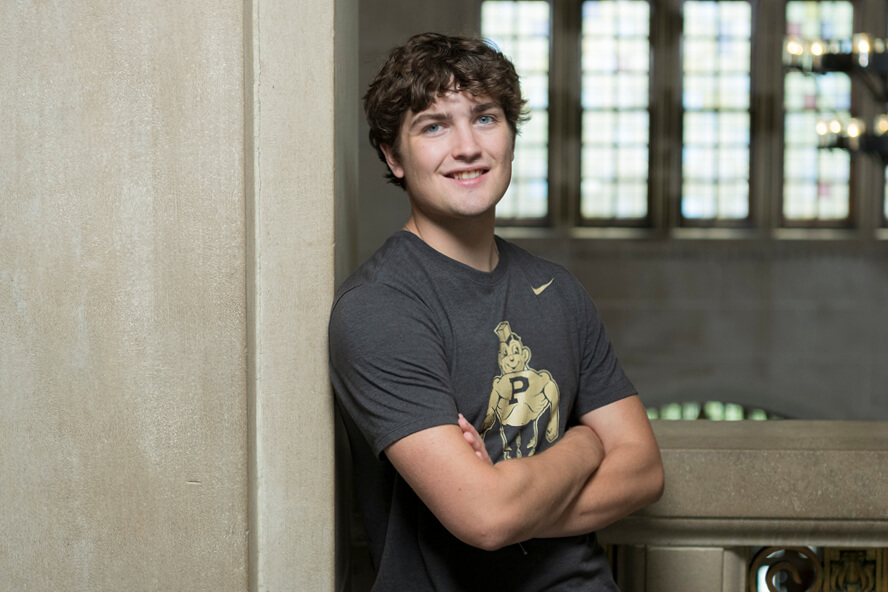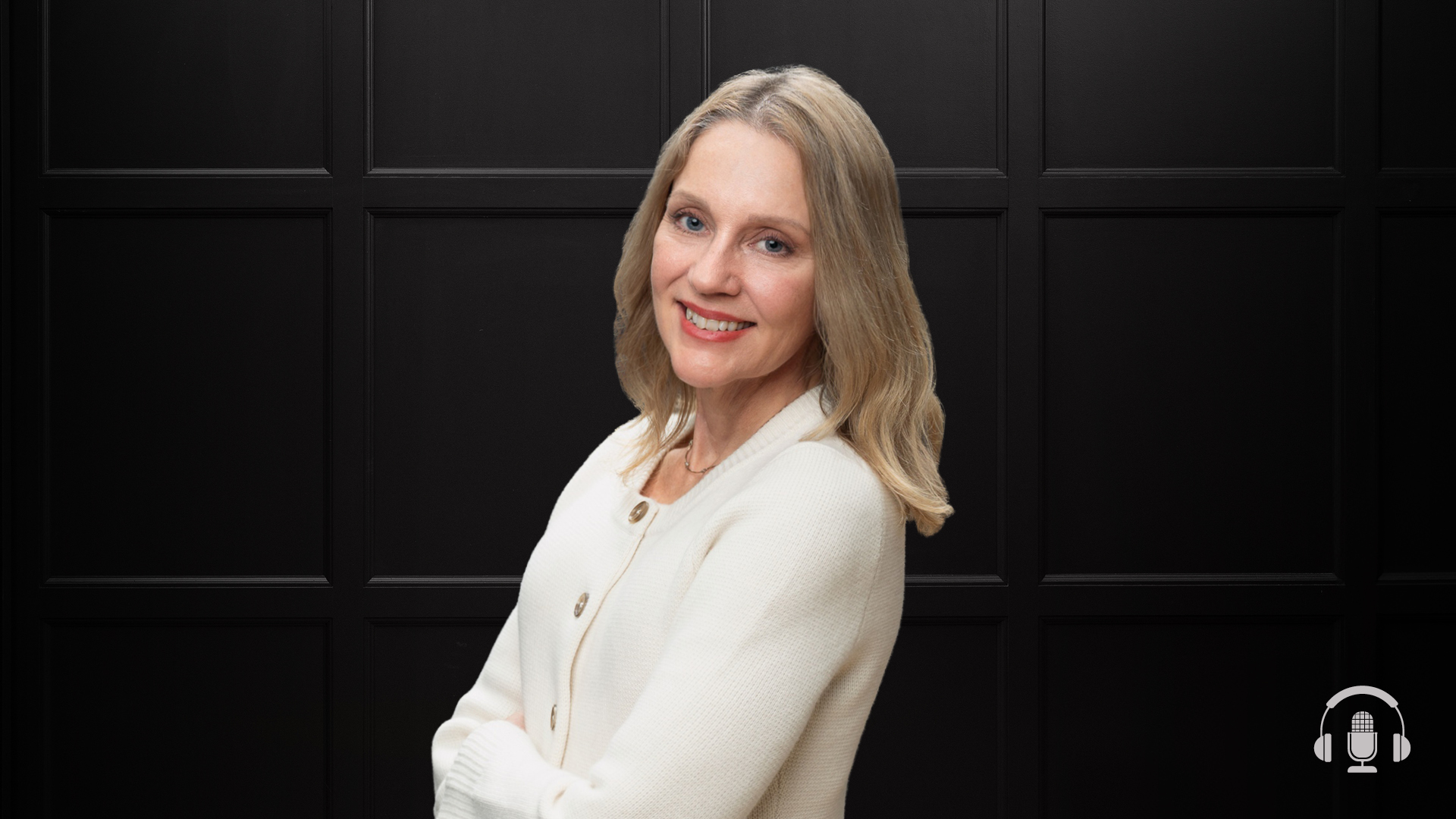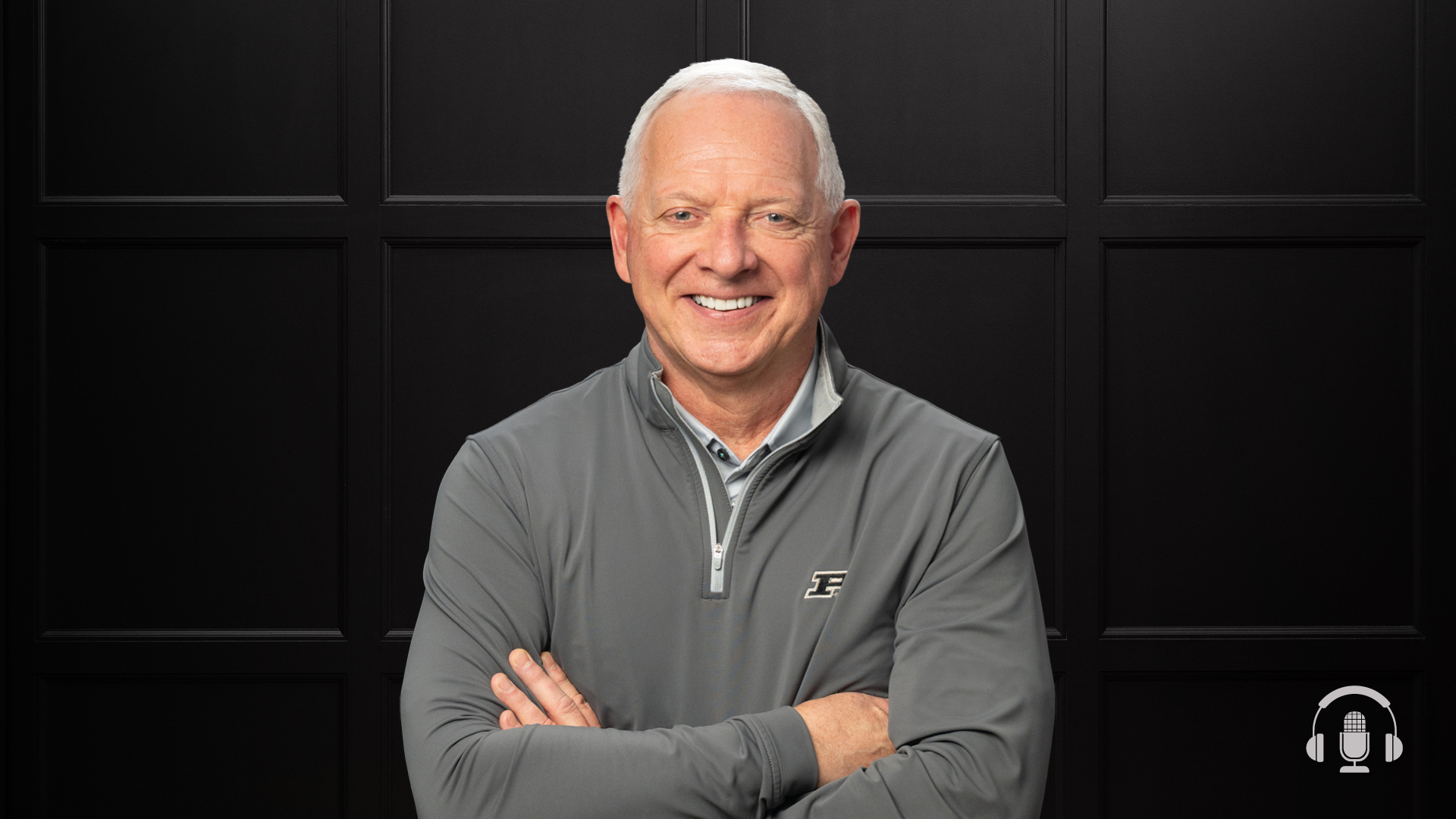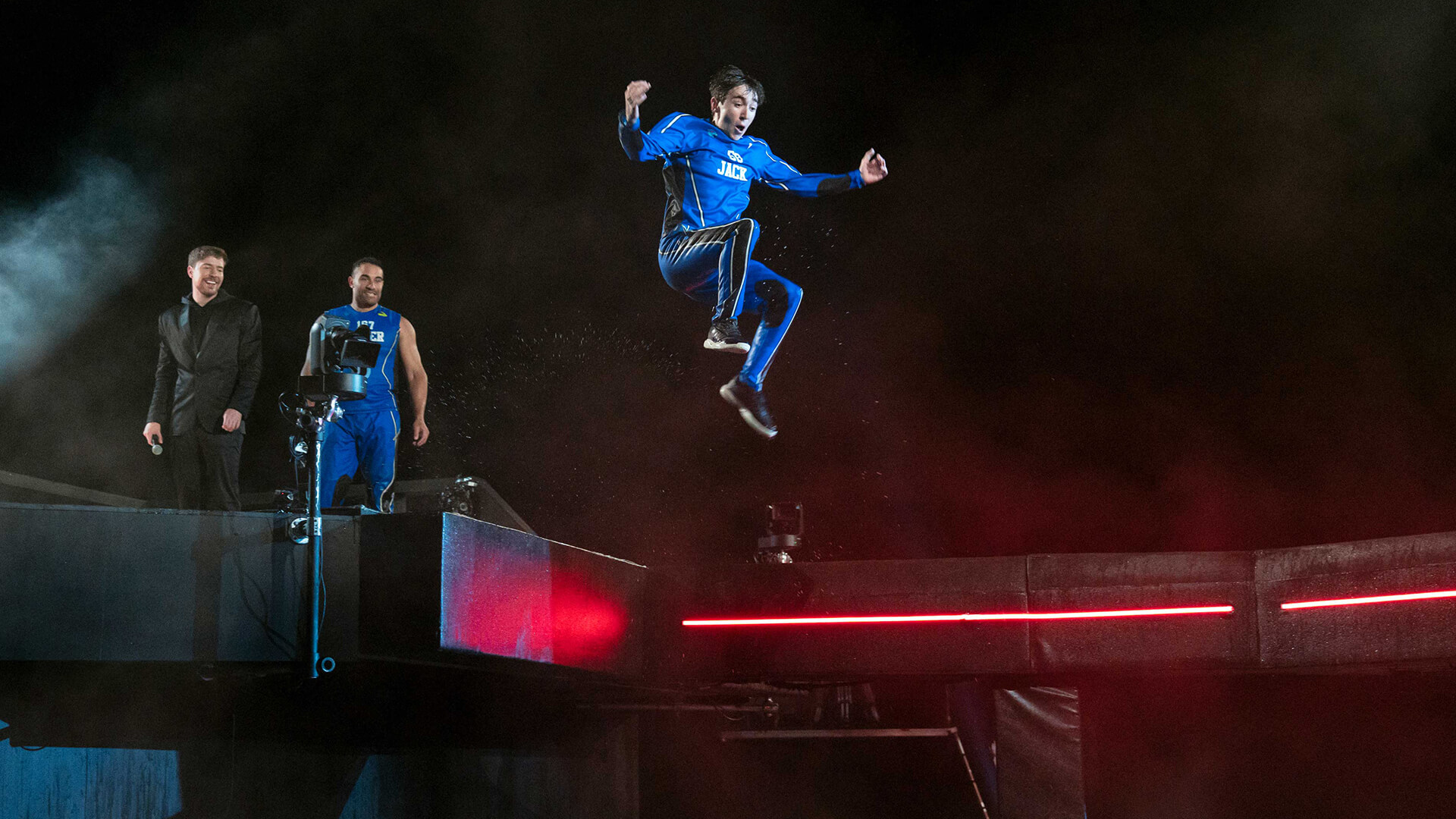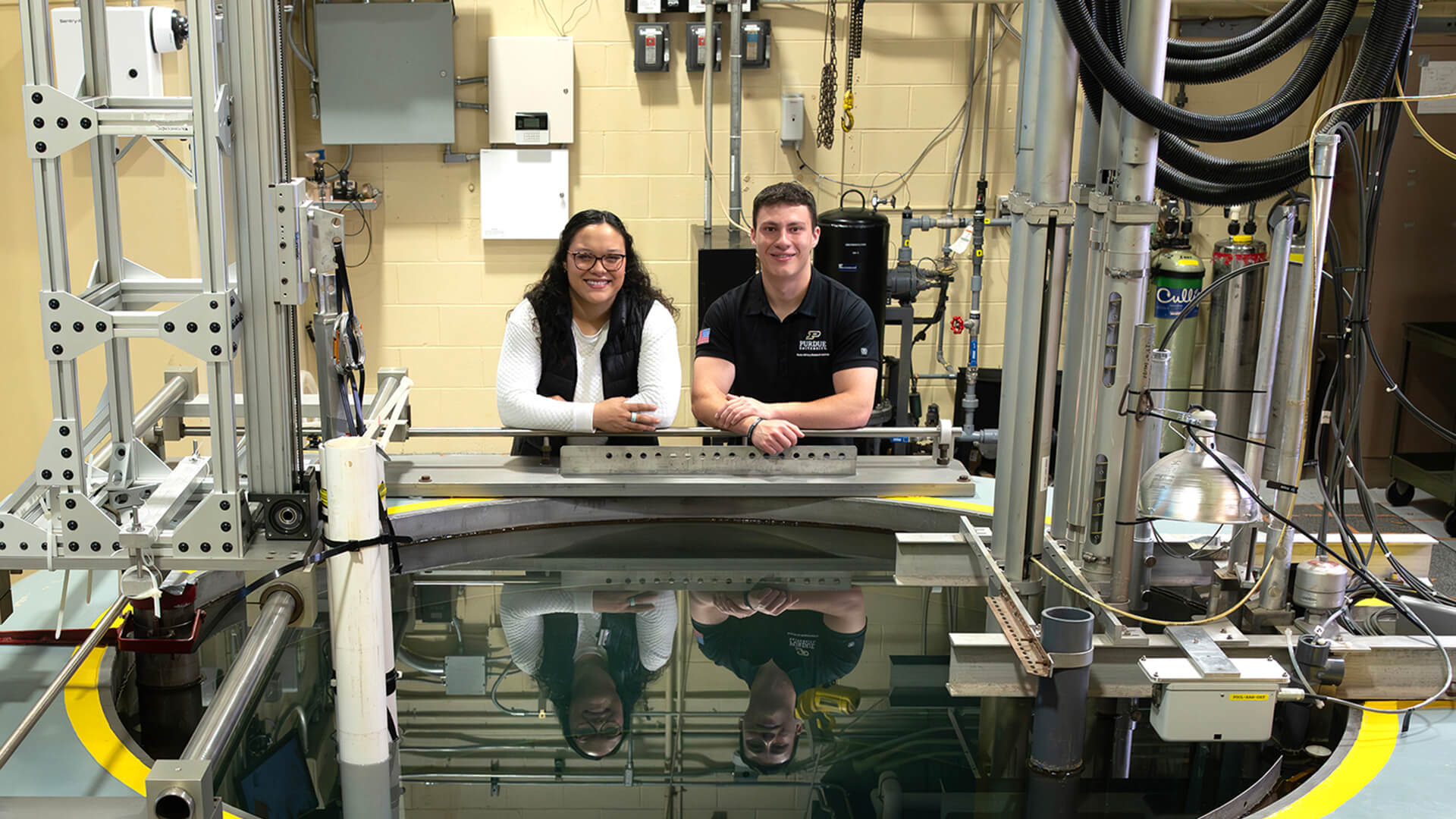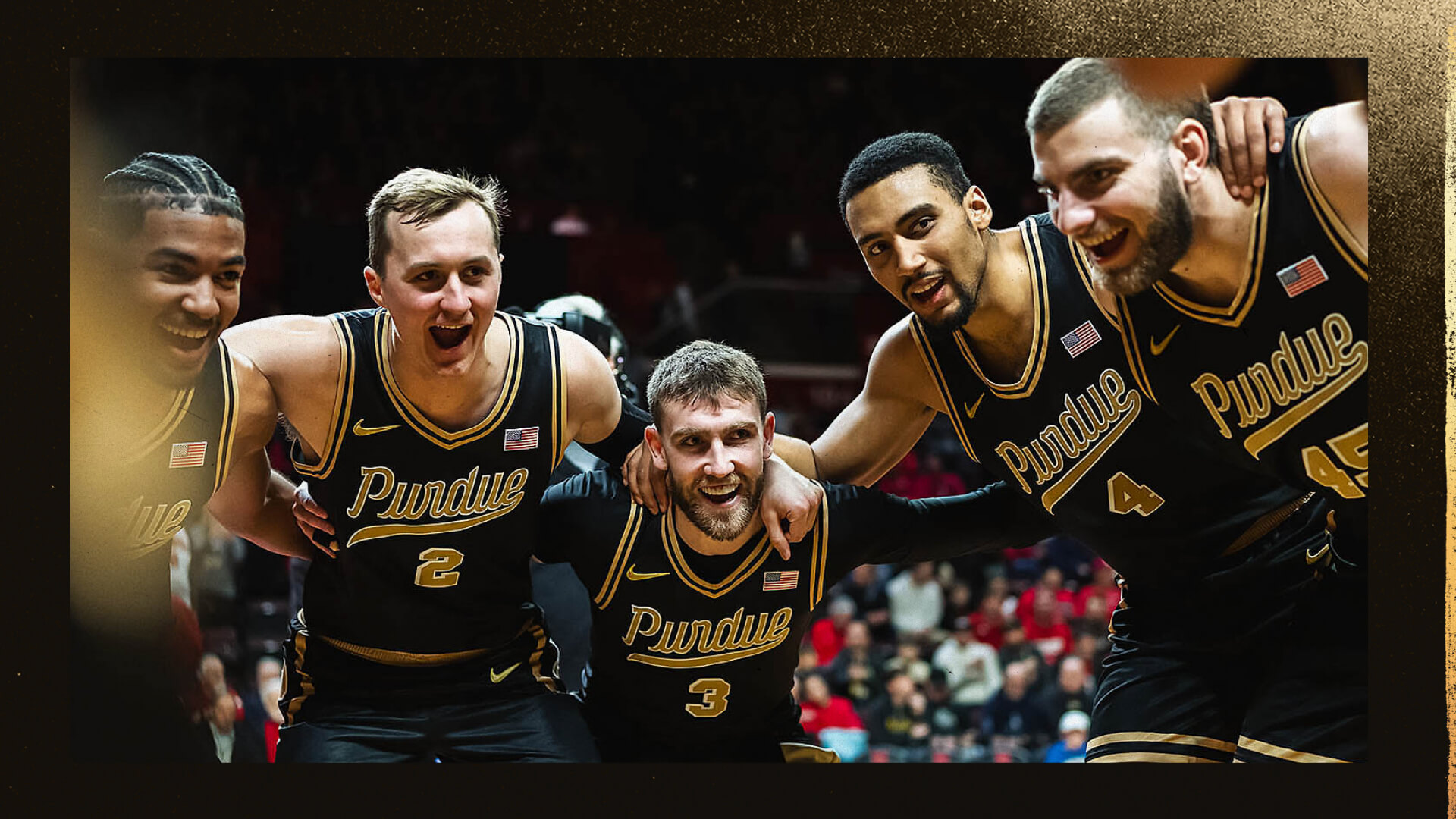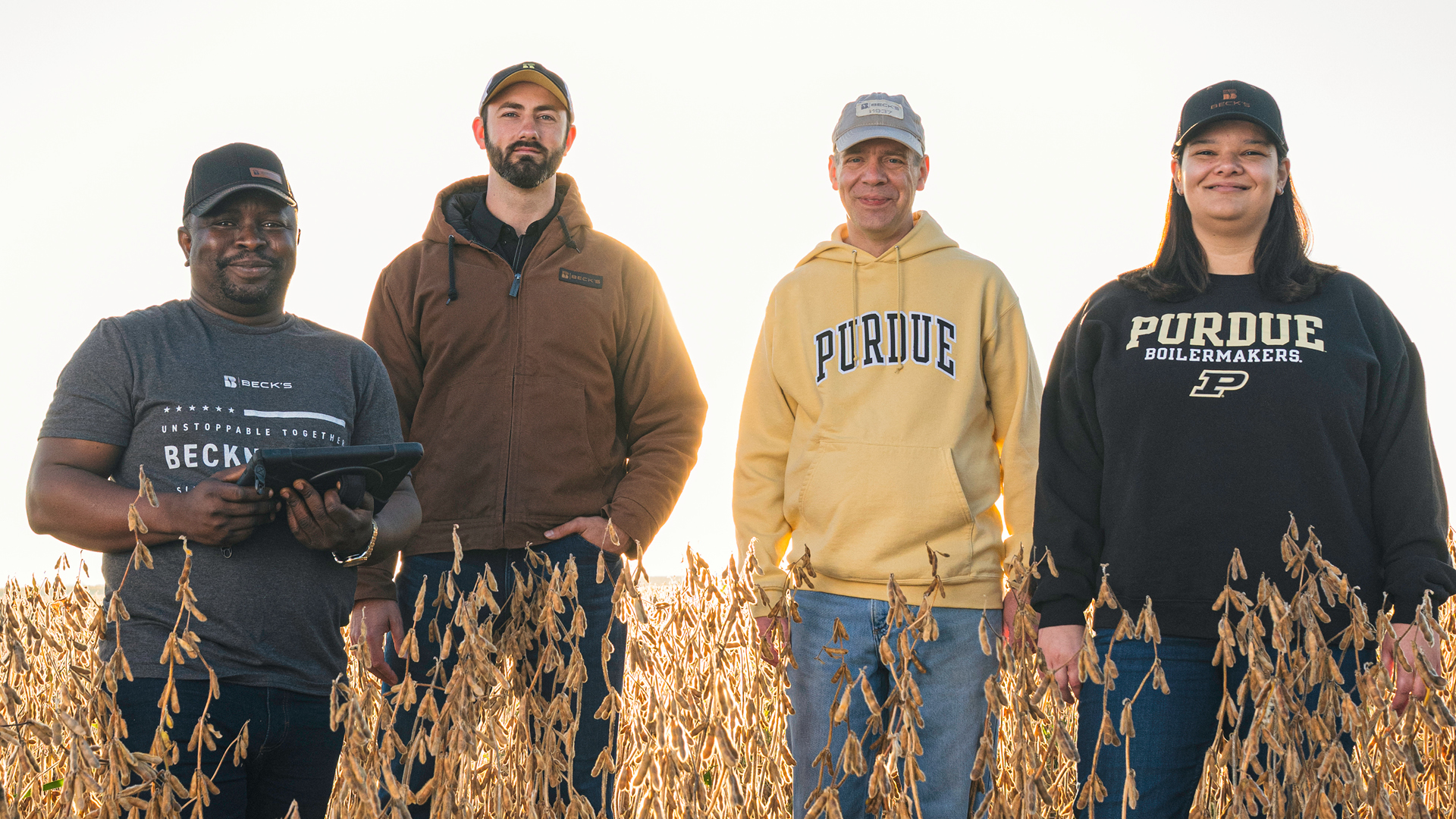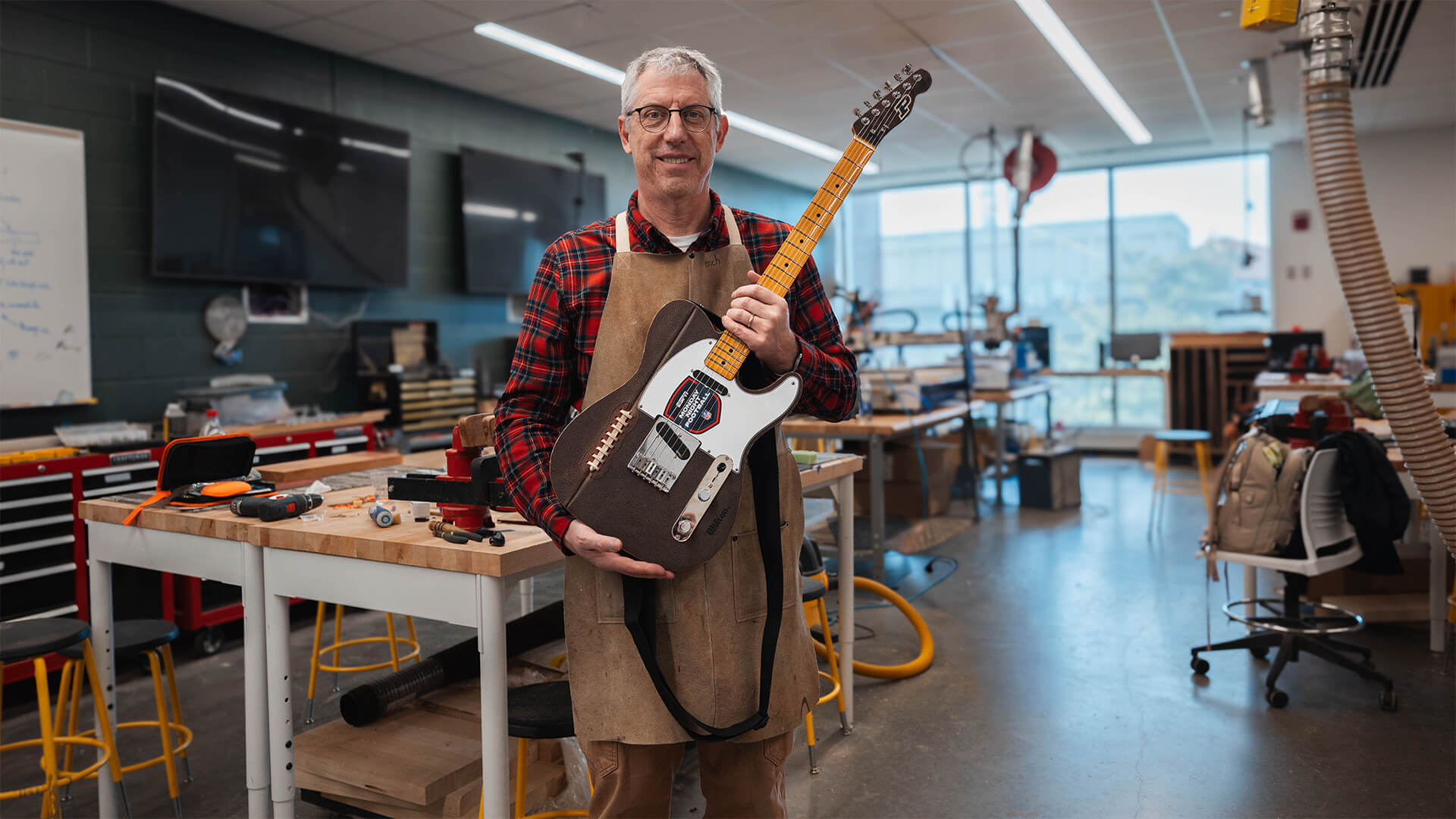Tyler Trent Award winner back in the game after leukemia diagnosis
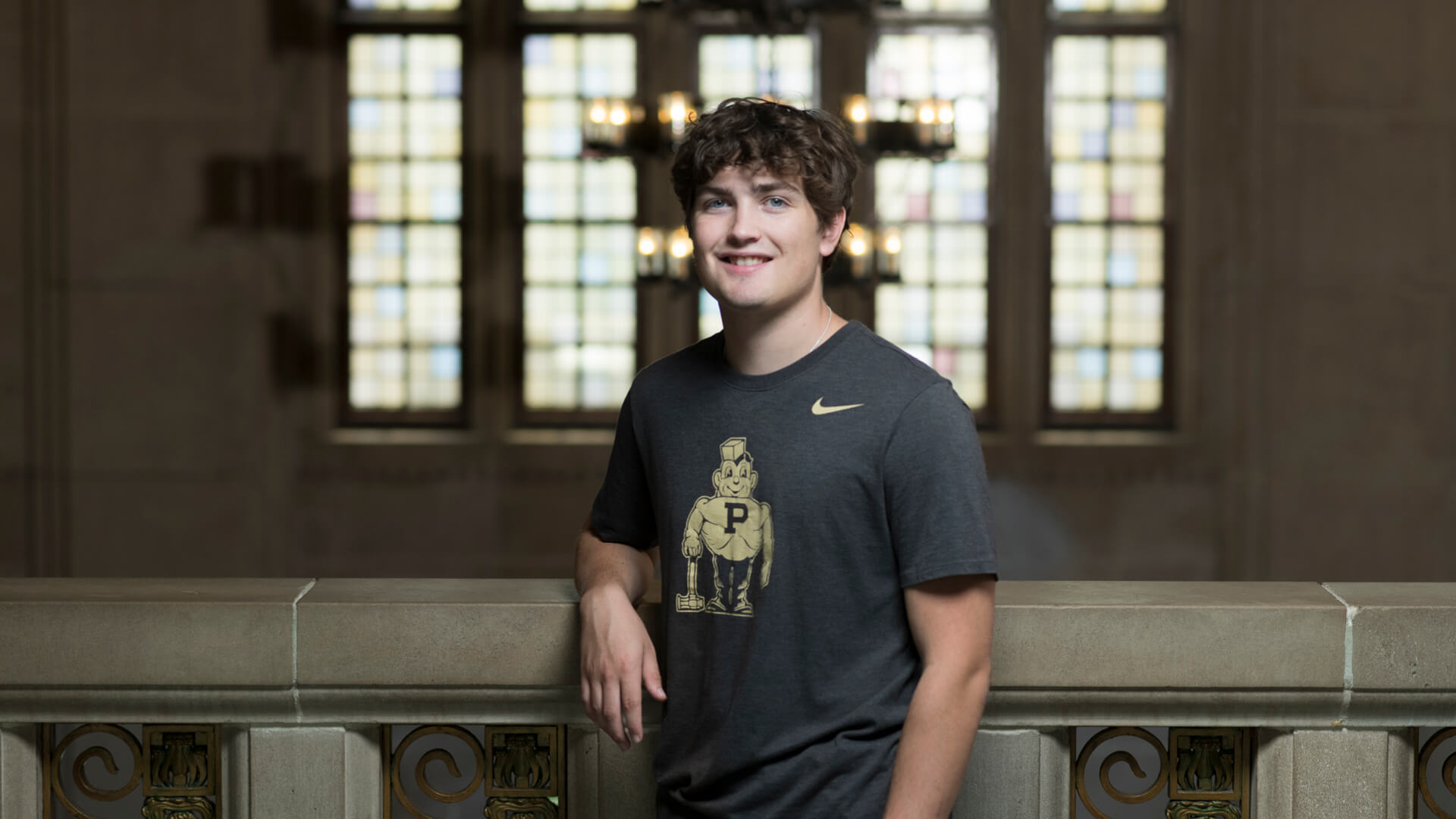
Andrew Kinder, winner of the 2023 Tyler Trent Courage and Resilience Award. (Purdue University photo/John Underwood)
Cancer took Andrew Kinder off the field in high school, but it couldn’t match the 2023 Tyler Trent Award recipient’s persistence
Andrew Kinder has taken hits all his life. He fell in love with lacrosse in second grade. Collisions come with the territory.
“I love the fast-paced nature of the game,” Kinder says. “It’s a combination of a bunch of different sports.”
But this time, something was different. It was the spring of his junior year in high school. Right away, he knew something was wrong.
“I thought I’d broken a rib,” Kinder reflects.
Focused on state championships, he was determined that whatever this was, it wouldn’t get in his way.
A hospital visit showed that Kinder had an enlarged spleen. Still, no need to panic. He got blood drawn and tests taken. Then, the morning of April 27, his dad woke him up and told him that they needed to go to Riley Hospital for Children in downtown Indianapolis.
That’s when he got his diagnosis: leukemia.
Suddenly, everything that had been happening in the weeks prior made sense — the fatigue, the bruises, the painful hit he took weeks earlier. Still, it didn’t feel real.
As Kinder reeled from the news, the teammates he had depended on so reliably on the field were about to become the most constant and supportive of teammates off the field.
“The first thing I did was text my friends,” Kinder says.
“Me and another one of Andrew’s childhood best friends, John Sheddy, were in the locker room after lacrosse practice when we got the text that it was cancer,” says Jack Wajda, now a sophomore at the University of Kentucky. “I just remember us both looking at each other and giving each other a huge hug as we were crying, hoping everything would be all right.”
Because he was diagnosed in April 2021, COVID-19 protocols prevented them from visiting the hospital. Even so, they did everything in their power to make sure that Kinder knew he wasn’t going through this alone.
“We wanted to stay in touch with him as much as we could,” says Johnny Kraege, a Notre Dame sophomore. “We did a lot of FaceTime calls, got him to smile or joke around a lot — just trying to keep it normal, because that’s what we’re usually like. I think that a sense of normalcy is really what he needed.”
“We’ve all been friends for so long. I kind of knew that no matter what I went through, it wasn’t just me,” Kinder says. “There were all these other people with me.”
And when he started losing his hair, Kinder’s teammates and friends were right there alongside him shaving their heads.
I knew that no matter what I went through, it wasn’t just me.
Andrew Kinder
Sophomore, Mitchell E. Daniels, Jr. School of Business
Settling into a new normal
“When I got diagnosed, I didn’t know how to react,” Kinder recalls. “The only thing I did was what I knew how to do. And that was just to live my life like the way I did.”
Unfortunately, maintaining normalcy would be a challenge. At least initially. Kinder’s treatment included a 41-day stay at Riley’s. He could only have one parent with him at a time.
“Not being able to see anyone and just sitting there was definitely the worst part,” Kinder says.
After his release from the hospital, treatment continued with a rigorous regimen of daily pills and multiple follow-up hospital visits — including regular hematology and oncology appointments and a pair of extended stays with the flu and COVID-19. His mother, Betsy, has a background in social work. Her ability to take ownership of a project, break it into small pieces and keep everything in motion was invaluable.
“Sunday is the worst night,” she says. “He takes 25 of one of the pills, and then four and a half of another and two more — so, you know, over 30 pills in one day.”
Kinder isn’t one to complain; he simply notes that, after his Sunday treatments, he sometimes vomits in the morning after waking up.
“His doctors and nurses love him,” Betsy says. “He just says, ‘Do what you have to do to get me out of here so I can live my life.’ He doesn’t take the time to take a pain pill before treatments because that means more time in the hospital. His attitude is, ‘Just give me the medicine.’”
As Kinder neared graduation at the end of his senior year at Cathedral High, his goal was clear: attending Purdue. He had experienced tailgates, Triple XXX and game days aplenty. He was even there with his family for Purdue’s legendary upset of Ohio State University in 2018. But he was hungry to experience everything as a student — as a Boilermaker.
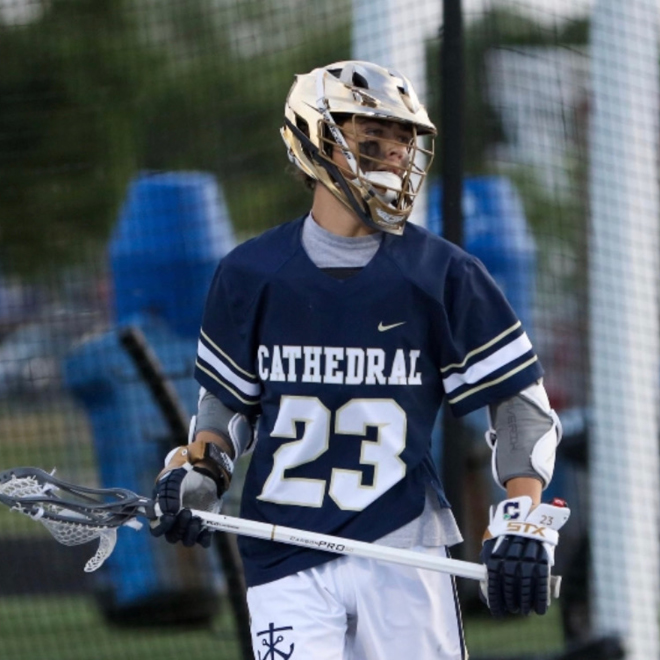
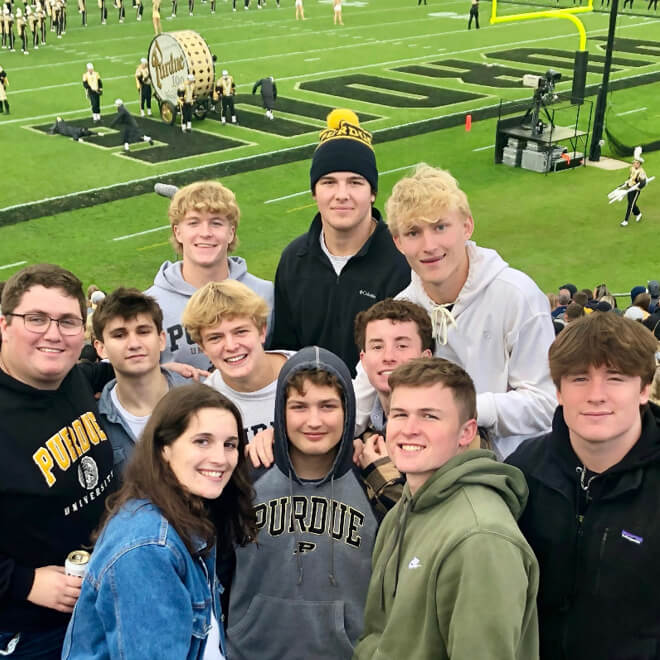
Betsy and her husband, Patrick, supported their son’s push. Even so, she is quick to admit it felt scary.
“I’m not kidding you — from the minute Riley told us he had leukemia when we were sitting next to him in the hospital bed, they told us, ‘Continue living your life. Let him do what he can. He’ll know what he can and can’t do.’”
So, in August 2022, Kinder left home determined to have the most normal year possible as a Purdue freshman. He played intramural sports, went to football and basketball games and rushed for Beta Theta Pi. In a twist of fate, Beta’s philanthropy — Buzz a Beta — raises money for the Purdue Institute for Cancer Research.
Through all of the new experiences and friendships at Purdue, some things remain the same. Although most of Kinder’s high school friends attend other schools, their support remains constant.
“They’re the ones that went through it with me,” Kinder says. “I’ve made new friends at Purdue, but they’ve seen me pretty healthy. My lacrosse team friends have seen everything, and they are my biggest support.”
If anything in Kinder’s story shines as bright as his humility and persistence, it’s the love of his friends. Their determination to show up again and again, in any way they could through their friend’s journey.
“When we all came back from school this summer, it was like nothing ever happened and we’re the exact same,” Kinder says.
“Seeing him just make tiny steps every day was really cool to see,” says Kraege, Kinder’s friend and former teammate.
He recalls when Kinder made it back onto the field after his hospital stay.
“One moment that sticks out to me was Andrew scoring his first goal back after having leukemia,” he says. “I get the chills thinking about it right now. Seeing the team, the bench, the crowd explode after he scored that goal was supercool. I know it’s something our team will never forget.”
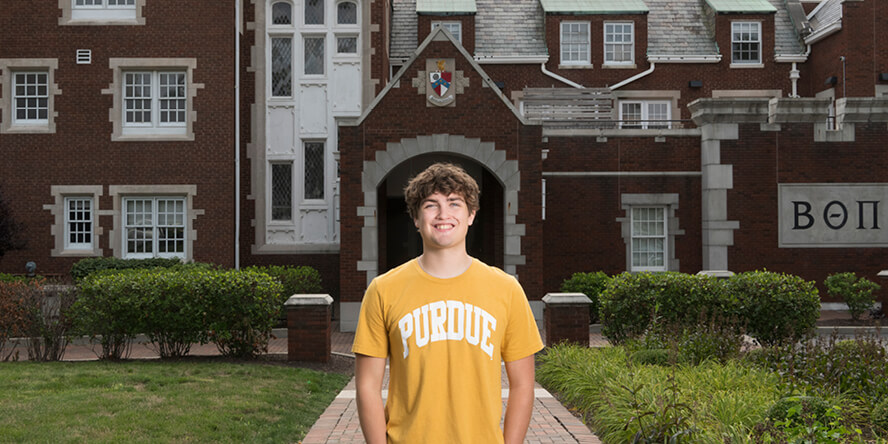
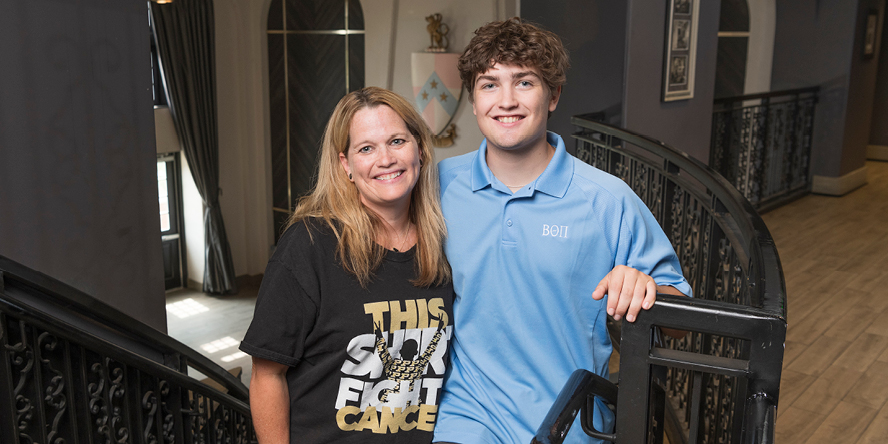
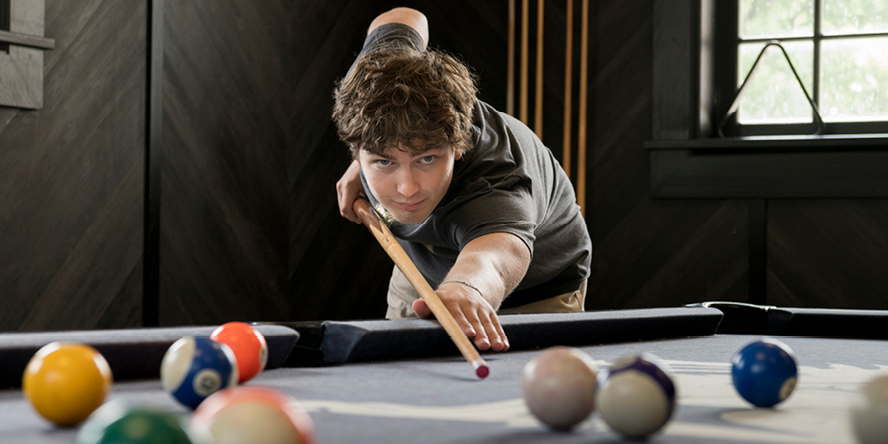
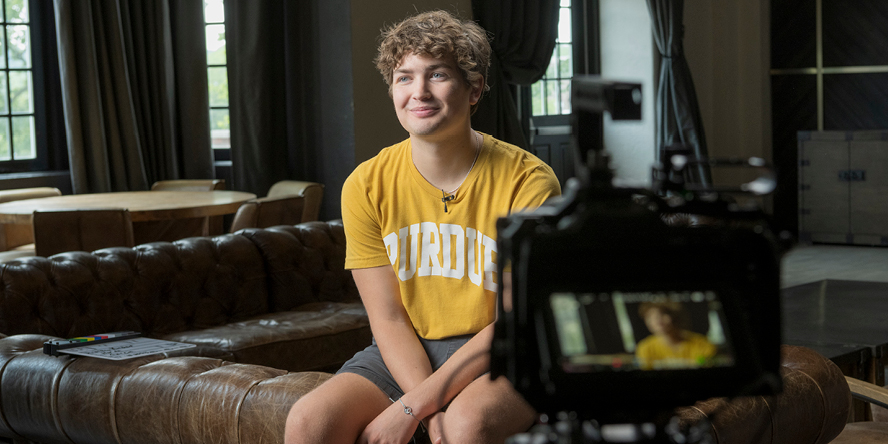
The 2023 Tyler Trent Courage and Resilience Award recipient
Now a sophomore at Purdue, Kinder won the 2023 Tyler Trent Courage and Resilience Award — named after Purdue’s most beloved superfan — in recognition of his spirit and persistence. There are striking comparisons between the two that go far beyond their mutual love of Purdue sports. There’s their curly brown hair. Both business majors from neighboring towns on the north side of Indianapolis. And, coincidentally, both discovered their cancer diagnoses because of sporting accidents. But above all, it’s their spirit that unites the two.
“If you ask anyone how I changed, they’ll just say I haven’t,” Kinder says. “Adversity is only temporary — that’s kind of what I told myself. It’s gonna be hard for a little bit. But there’s always light at the end of the tunnel, no matter what happens.”
During the 2018 College Football Awards Show where Tyler Trent received the Disney Spirit Award, he said something very similar when asked what message he had to share.
“At the end of the day, there’s always a light at the end of the tunnel,” he said. “As long as you rely on your faith, things will work out.”
Launched in 2019, the Tyler Trent Courage and Resilience Award offers a $5,000 scholarship to a Purdue undergraduate who embodies Trent’s spirit.
“Tyler Trent defined what it means to be a Boilermaker,” says Purdue President Mung Chiang. “He was known by his passion, faith and determination to find the best in any situation. We’ll never forget how he united our campus — and that spirit lives on in Andrew Kinder today.”
“Tyler Trent always had his head up, kept going, never would stop,” Kinder says. “When I got diagnosed, I could sit and not do anything or I could continue to live my life the way that Tyler did.”
Asked his advice on overcoming adversity, Kinder keeps it simple.
“You’ll be all right. Just keep going forward. Because if you keep looking at what’s holding you back, you’ll never go anywhere.”
Adversity is only temporary. It’s gonna be hard for a little bit. But there’s always light at the end of the tunnel, no matter what happens.
Andrew Kinder Sophomore, Mitchell E. Daniels, Jr. School of Business
